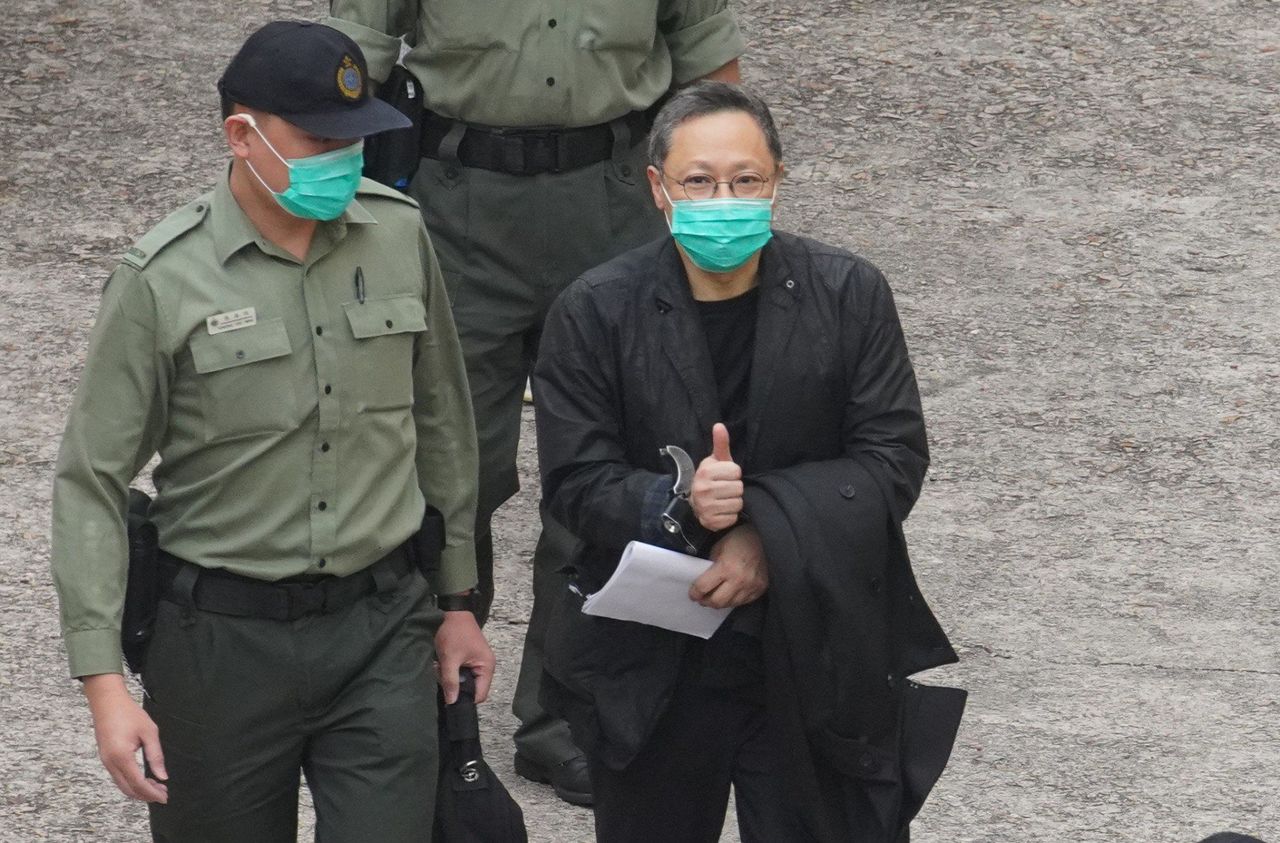Hong Kong News

Informant admits giving recordings from meeting of Hong Kong 47 to police
A police informant in Hong Kong’s largest national security trial has admitted to submitting as evidence unauthorised recordings from an opposition camp meeting on holding an unofficial primary election, arguing their goals ran contrary to “society’s interests”.
The source, who cannot be named due to a gag order, on Tuesday denied infiltrating the opposition camp to gather evidence and insisted he had taped the private discussions in May 2020 for his own “research”.
But he dodged questions about the nature and result of his purported study, as well as his reasons for assisting authorities after Beijing imposed the national security law at the end of the following month.
The informant’s testimony emerged on the 55th day of a 90-day trial involving 16 of the 47 opposition figures, who are contesting a joint subversion charge stemming from the opposition-led primary in July 2020.
They are among 47 defendants accused of organising or taking part in the unofficial poll to ensure the opposition won a majority in the Legislative Council so they could paralyse the government and topple Carrie Lam Cheng Yuet-ngor, the city’s chief executive at the time.
In supporting their case, prosecutors had previously made reference to a May 8 meeting among some of the prospective contenders for the primary.
One of the organisers, former law professor Benny Tai Yiu-ting, had said in the meeting that blocking budgets was the first step to pursuing other political goals, including pressing authorities to respond to demands raised by anti-government protesters in 2019.
The two-hour session was taped by the informant, who claimed to be Tai’s “acquaintance” and had no political affiliation.
 Former legal scholar Benny Tai (right) was one of the meeting’s organisers, according to the witness.
Former legal scholar Benny Tai (right) was one of the meeting’s organisers, according to the witness.
He filed an anonymous report to police in September or October 2020 containing 11 video clips and two audio files of the meeting, before the arrest of the 47 in January of the following year.
The informant was invited to attend two interviews with national security officers in April and May 2021.
An excerpt of the meeting played in court showed the camera moving and pointing in different directions, with the user hiding the device under a desk at times.
The witness on Tuesday maintained he did not make the recordings covertly and said he had done so “fair and square”.
He acknowledged, however, that his action was a “deliberate and conscious” decision, saying he had bought a camcorder and voice recorder for this very purpose.
“[Tai] said they would need to restrict the number of participants in the primary so as to control Legco, veto the budgets and force the chief executive to step down. I thought this was very problematic. This was not in society’s interests,” the witness said behind a screen erected to conceal his identity.
The informant said he believed Tai’s ultimate objective was to “overthrow the government” because the former professor had repeatedly talked about forcing the city’s leader to resign.
Defence counsel Erik Shum Sze-man, representing two of the accused, questioned whether the informant’s actions were driven by political motives.
The witness said he had worked for a pro-government district councillor before meeting Tai, but insisted he had no political leanings and had contacts both in the pro-establishment side and “your so-called pan-democratic camp”.
He also denied receiving any reward for helping the prosecution. “I don’t know whether the government will present me the Good Citizens Award,” he added.
The trial continues.
Tai and three other organisers of the primary are among 31 defendants in the case who have pleaded guilty to the subversion charge or indicated they would admit liability.
The three organisers – Au Nok-hin, Andrew Chiu Ka-yin and Ben Chung Kam-lun – have previously taken to the witness box.











